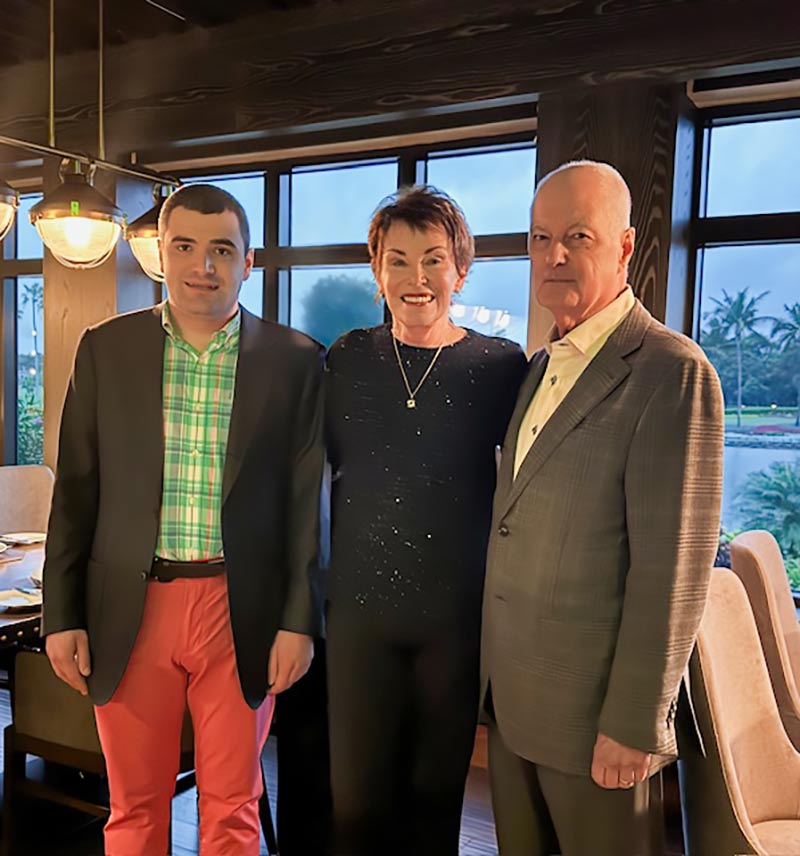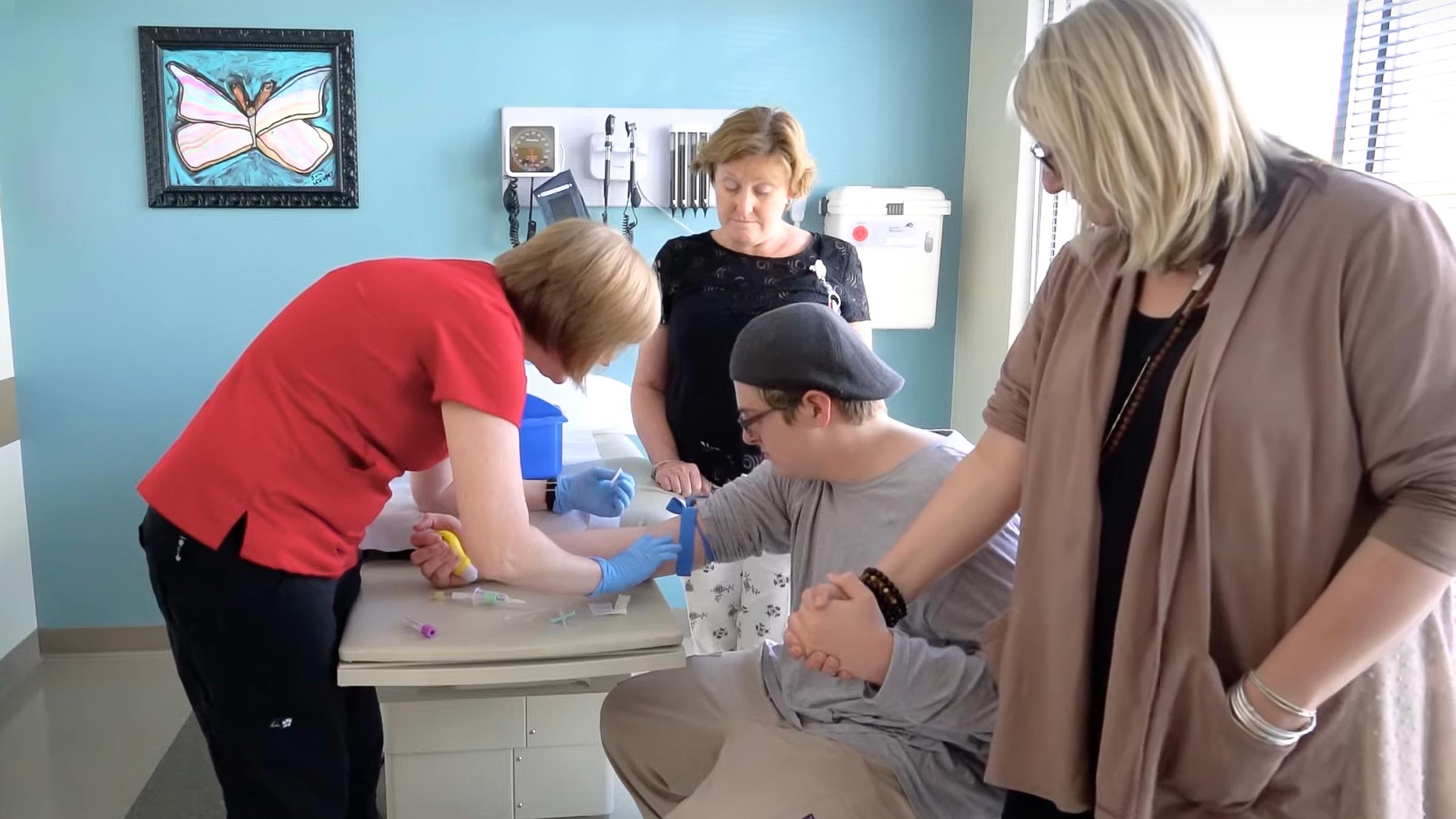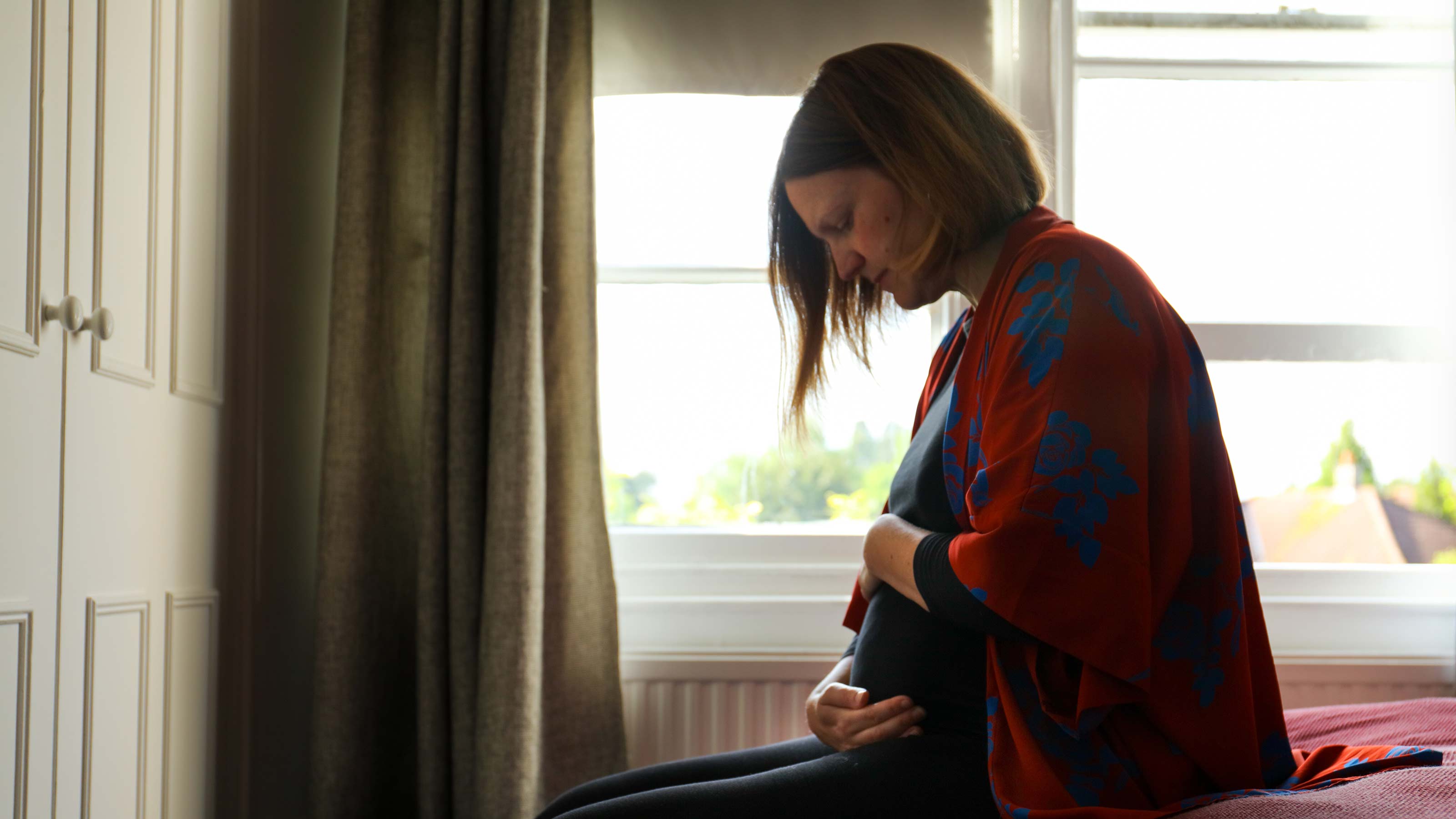Family’s passion fuels healthy transitions for adults with autism
Program at Ohio State elevates research and education to improve health care services for adults with autism.
Going to the doctor can be stressful for anyone. But for Caray Hudgins, an adult with autism, routine office visits filled him with overwhelming anxiety and discomfort.
 Like children, autistic adults have heightened sensory sensitivities, difficulty interacting in social situations, communication barriers and firm routines. As they transition from pediatric to adult care, these patients and their families often struggle to find providers uniquely qualified to address their complex challenges.
Like children, autistic adults have heightened sensory sensitivities, difficulty interacting in social situations, communication barriers and firm routines. As they transition from pediatric to adult care, these patients and their families often struggle to find providers uniquely qualified to address their complex challenges.
But thanks to the generosity of Marci and Bill Ingram, the Center for Autism Services and Transition (CAST) at The Ohio State University Wexner Medical Center is transforming health care solutions for patients like Hudgins.
“Our goal is to make sure that adults with autism whose needs are not being met in other health care systems are being met well through CAST,” says Christopher Hanks, MD, CAST’s medical director.
A growing need to care for adults with autism
The Centers for Disease Control and Prevention (CDC) estimates that 2.2% of U.S. adults — more than 5.4 million people — have autism. The CDC’s most recent statistics (2020) show that one in 36 children is diagnosed with autism, up from one in 44 children in 2018.
Since its inception in 2014, CAST has treated more than 1,000 people and has expanded to four locations in central Ohio. Their team of doctors has grown to seven, with another to join in the fall.
With the additional team members and locations, CAST can accommodate more people more quickly. Physicians now see up to nine new patients a week and are averaging 112 patient visits a month.
Hudgins, 26, has been a patient at the Hilliard location for six years. He uses a device to help him communicate. His mother, Wendy Banks, says CAST has made a world of difference in their lives.
“Everyone is all smiles, quick to respond and very friendly,” says Banks, adding that appointments are more productive, and examinations run smoothly. “We have a better understanding of autism, and they have helped with referrals to resources such as dentistry, ophthalmology, home aides and occupational therapy.”
A ‘wake-up call’ about the need for care for adults with autism
 When the Ingrams’ son, Chris, now 32, was diagnosed with autism as a young child, places like CAST didn’t exist and information was scarce. There was no internet to research the diagnosis and treatment. At the time, Marci says, she found herself scouring books at Barnes & Noble.
When the Ingrams’ son, Chris, now 32, was diagnosed with autism as a young child, places like CAST didn’t exist and information was scarce. There was no internet to research the diagnosis and treatment. At the time, Marci says, she found herself scouring books at Barnes & Noble.
Over the years, she and Bill bonded with other parents of children with autism. “We learned from one another, and it motivated us to do something to hopefully improve the lives of autistic children and their families in central Ohio,” Marci says.
The unfortunate experience of a fellow parent — and dear friend to Marci — inspired the Ingrams’ transformational gift to establish CAST. Her friend’s son — who has autism — had a seizure and needed to go to the emergency department. When medics arrived, they said they couldn’t transport him to the pediatric hospital — where doctors were equipped to treat him — because he was 18.
“It was a wake-up call for all of us,” Marci says. “Our children would need to transition to adult care, and we needed to have those services in place as they grew out of their pediatricians.”
Caring for patients and educating health care providers
CAST’s aim is to serve as a model in offering comprehensive, specialized care for transitioning adults with autism. At the same time, CAST works to improve services in health care systems by educating providers to treat and address the health care needs of these individuals.
“Our goal is to maximize implementation and effectiveness so best practices can be used across multiple health care settings,” Dr. Hanks says.
To foster an integrated approach to care, CAST’s team includes a psychiatrist and medical social worker to address the mental, social and behavioral needs of patients, and to help connect patients and families to additional resources and providers.
Helpful what-to-expect videos and guides of each office help people prepare for and navigate office visits, or “happy visits,” to reduce patients’ anxiety and contribute to better overall outcomes.

To ensure future physicians are prepared to care for adults with autism, about 100 students from The Ohio State University College of Medicine have been exposed to patient care through rotations with CAST providers. Nineteen medical students have completed the Advanced Competency in Developmental Disabilities rotation, and 14 residents representing internal medicine, pediatrics and family medicine have participated in CAST’s autism-focused training program.
“It has been incredibly exciting to see CAST grow over the past 10 years,” says Carol R. Bradford, MD, MS, FACS, dean of Ohio State’s College of Medicine, vice president of Health Sciences for the Wexner Medical Center and the Leslie H. and Abigail S. Wexner Dean’s Chair in Medicine.
“Because of passionate donors like Marci and Bill, who have been true advocates from the beginning, we are making an extraordinary difference in the lives of adults with autism,” Dr. Bradford says.
Proving the power of the CAST model
In collaboration with Brittany Hand, PhD, OTR/L, an assistant professor in Ohio State’s School of Health and Rehabilitation Sciences, CAST conducted research to understand the program’s impact on health care disparities. The findings show that CAST patients:
- receive 10% higher continuity of care relative to national samples of adults with autism.
- report higher satisfaction with care and fewer unmet health care needs compared to published data in adults with autism.
- have greater odds of receiving preventive services than Medicare-enrolled and privately insured adults with autism.
Looking forward, Dr. Hanks says CAST’s focus will be building and supporting better infrastructures to advance continuity of health care. The center is forming a patient and family advisory committee to evaluate effective strategies and improve quality of care. CAST is also developing a documentation process that follows people as they are cared for in different health care settings.
“We want to create and streamline pathways, forge partnerships and share information within our communities so this population of patients get the specialized care they need,” Dr. Hanks says.

Specialized care for young adults on the autism spectrum
The Ohio State Center for Autism Services and Transition (CAST)
Learn more



